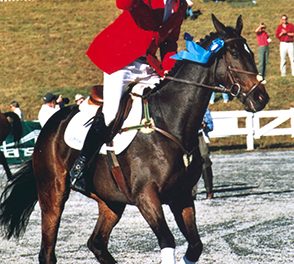by Jane Seigler, MHC Government Relations Committee Co-Chair (first published in the January 2023 Equiery)
Maryland horse people are passionate, committed – some might even say, intense. Mostly, they focus on their day to day responsibilities to their horses, their riding and, where applicable, their clients. But they are increasingly opening their focus to the broad issues that affect the equestrian community and the horse industry as a whole. There is growing understanding that “the whole is greater than the sum of its parts,” and that “we are all in this together.”
One of the main missions of the Horse Council is to represent the interests and concerns of our equestrian community, especially before the state and local government. To better serve that end, in November we issued a Legislative Survey that was sent to our members as well as the wider equestrian community. We received 91 responses.
We asked people to identify which topics were of the highest concern to them. Seventy seven respondents identified animal welfare as a main concern; followed by trails, parks and public lands which was identified by 65 respondents, and land conservation and preservation (61). Respondents also selected environmental issues (46), zoning (43), insurance and liability (30), labor (17) and motor vehicles (14).
Animal Welfare
Within the animal welfare topic, cruelty and neglect was identified as the major concern (66 respondents), followed by rescues, sanctuaries and rehoming (48), and end of life management and disposal (38). Commenters mentioned the high cost of boarding and keeping horses, the difficulty of finding farriers the high cost of vet and farrier care, and the lack of enforcement of standards of care and court orders.
Environmental
Nutrient management, and water quality/impervious surfaces ranked equally as environmental concerns (35 each). Renewable energy, including solar farming, and manure composting closely followed at 31, and 30, respectively. Sediment control (21) and noxious weeds (11) rounded out the list. Trail erosion and overdevelopment were mentioned as additional concerns.
Trails
Trails access and maintenance was identified as a major concern by 68 respondents. Fifty five selected multi-user etiquette and safety. New trail construction was a concern of 46 respondents, followed by deer hunting (39).
Insurance and Liability
In the category of insurance and liability, equine liability laws were of concern to 37 respondents. Twenty nine selected the right to ride, and 22 identified contributory negligence.
Labor and Employment
Concerns about wage and hour laws, and horse labor as agricultural labor, each garnered 15 choices, with affordable health coverage closely following (14). Other labor issues identified were affordable mental health coverage (11), workers comp (8), OSHA regulations, and immigration rules had seven each. Three respondents identified payroll tax as a concern. One respondent mentioned the difficulty of finding employees, Another expressed a desire for more information on labor and employment laws and regulations.
Land
Among land conservation and preservation issues, 46 respondents were concerned about allowed uses, 39 about agricultural tax eligibility, and 33 about program funding. Again, one respondent noted a request for more information about the programs and governing rules.
Zoning
Forty-three respondents identified the definition of agricultural uses as a concern related to zoning. Thirty choose the right to farm as an issue of concern. Setback requirements (22) and construction permits (18) were also identified. One commenter stated that grandfathering of existing properties and uses should be allowed when areas are rezoned. Another advocated for state-wide, more detailed zoning for horses.
Motor Vehicles
In the motor vehicle category, trailering regulations topped the list (19), followed by farm equipment rules (13), and CDL (Commercial Driver’s License rules (10). One commenter mentioned curbing the abuse of farm tags.
There were a number of general comments submitted with the survey. They included comments about:
• implementing the Horseracing Integrity and Safety Act (HISA) [Implementation of HISA is currently on hold, due to a ruling by the Fifth Circuit Court of Appeals that the law is unconstitutional.]
• horse transport for slaughter
• funding for competition venues
• financial and development pressures that threaten boarding barns
• welfare standards applicable to “backyard” horse owners
• need for adequate funding for park employees
• support for equine therapy programs
• development of statewide welfare and cruelty laws specific to horses (as distinguished from livestock and pets)
The 445th Session of the Maryland General Assembly will convene at noon on Wednesday, January 11, and will run for 90 days until Monday, April 10th at midnight. As we always do, the Horse Council’s Government Relations Committee will be working hard to advocate for the industry’s and the community’s interests. The results of the Legislative Survey provide valuable support for that effort, and we are grateful to all those who took the time to provide us with their thoughts and concerns.











